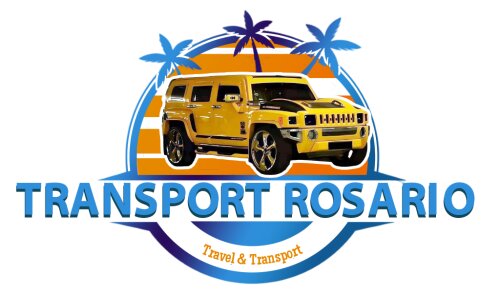Best Lawsuits & Disputes Lawyers in Punta Cana
Share your needs with us, get contacted by law firms.
Free. Takes 2 min.
List of the best lawyers in Punta Cana, Dominican Republic
About Lawsuits & Disputes Law in Punta Cana, Dominican Republic
Lawsuits and disputes in Punta Cana, Dominican Republic, like in much of the world, involve legal processes to resolve disagreements between parties. These can range from personal injury claims to commercial contract disputes. The Dominican legal system is a civil law system based on written codes and statutes, primarily derived from French and Spanish law. Dispute resolution can happen through litigation, arbitration, or mediation, depending on the specific circumstances of the case and the willingness of the parties involved to seek alternative dispute resolution methods.
Why You May Need a Lawyer
There are several common situations in which individuals or businesses may require legal assistance in Punta Cana:
- Contract Disputes: These arise when one or more parties believe the terms of a contract have been violated.
- Property Disputes: Often involve issues related to property ownership, boundaries, or lease agreements.
- Personal Injury Claims: These may result from accidents or negligence, requiring an understanding of local liability laws.
- Business Disputes: Partners or stakeholders may have disagreements over business operations, profit sharing, or decision-making authority.
- Employment Disputes: Issues between employers and employees over contracts, termination, or workplace rights.
- Family Law Issues: Divorce, custody, or inheritance disputes require sensitive legal handling.
Local Laws Overview
The legal framework governing lawsuits and disputes in the Dominican Republic is crucial for anyone seeking resolution through legal means. Here are some key aspects:
- Civil Code: The Dominican Civil Code outlines the rules for contract enforcement, liability, and damages.
- Judicial System: Cases are typically heard in lower courts, with appeals available to higher courts.
- Arbitration: Local law encourages arbitration as an alternative dispute resolution method, and decisions can be binding.
- Property Law: Property disputes are common and can involve complex legal considerations related to land rights and titles.
- Employment Law: Specific protections exist for workers, and disputes can involve intricate regulatory compliance issues.
Frequently Asked Questions
What is the first step in filing a lawsuit in Punta Cana?
The first step is usually to consult with a qualified attorney who can assess the validity of your case and help you draft and file the necessary legal documents with the appropriate court.
How long does it take for a lawsuit to be resolved?
The timeline can vary greatly depending on the complexity of the case, court backlog, and whether the matter is settled out of court. It can range from a few months to several years.
What are the costs involved in filing a lawsuit?
Costs can include attorney's fees, court fees, and any costs related to gathering evidence or securing expert testimony. It's important to discuss this upfront with your lawyer.
Can I represent myself in a legal dispute?
While self-representation is possible, it is not recommended due to the complexity of legal procedures and the advantage of having professional legal expertise.
Is mediation required before heading to court?
While not always required, mediation is often encouraged as a cost-effective and timely way to resolve disputes outside of court.
Can I choose arbitration over litigation?
Yes, if both parties agree, arbitration can be a viable alternative to resolve disputes and is often faster and less formal than court litigation.
What happens if I lose a lawsuit?
If you lose, you may be required to pay the damages awarded to the other party, as well as possibly covering their legal costs. An appeal is possible but depends on specific legal grounds.
What if the other party refuses to comply with a court judgment?
If the other party does not comply, you may need to take additional legal action to enforce the judgment, such as filing for a lien or garnishing wages.
How are property disputes usually resolved?
Property disputes typically involve negotiation or mediation, but they can also result in litigation if an agreement cannot be reached out of court.
Are there special considerations for business-related disputes?
Yes, business disputes often involve reviewing contracts and understanding commercial law, which may require specialized legal expertise.
Additional Resources
For further assistance, consider contacting the following resources:
- The Dominican Bar Association: Offers information and assistance in finding a qualified attorney.
- Local Chambers of Commerce: Can provide guidance and resources for business disputes.
- Consumer Protection Office: Helps resolve disputes related to goods and services.
- Ministry of Labor: Offers insights and dispute resolution related to employment issues.
Next Steps
If you are facing a lawsuit or dispute in Punta Cana, it is advisable to undertake the following steps:
- Consult a Lawyer: Seek out a qualified attorney experienced in Dominican law for a consultation.
- Gather Documentation: Compile all relevant documents and evidence that pertain to your case.
- Consider Alternatives: Discuss options such as mediation or arbitration with your lawyer.
- Stay Informed: Educate yourself on your rights and responsibilities under Dominican law.
With the right legal support and a clear understanding of the process, you can navigate your lawsuit or dispute effectively in Punta Cana, Dominican Republic.
Lawzana helps you find the best lawyers and law firms in Punta Cana through a curated and pre-screened list of qualified legal professionals. Our platform offers rankings and detailed profiles of attorneys and law firms, allowing you to compare based on practice areas, including Lawsuits & Disputes, experience, and client feedback.
Each profile includes a description of the firm's areas of practice, client reviews, team members and partners, year of establishment, spoken languages, office locations, contact information, social media presence, and any published articles or resources. Most firms on our platform speak English and are experienced in both local and international legal matters.
Get a quote from top-rated law firms in Punta Cana, Dominican Republic — quickly, securely, and without unnecessary hassle.
Disclaimer:
The information provided on this page is for general informational purposes only and does not constitute legal advice. While we strive to ensure the accuracy and relevance of the content, legal information may change over time, and interpretations of the law can vary. You should always consult with a qualified legal professional for advice specific to your situation.
We disclaim all liability for actions taken or not taken based on the content of this page. If you believe any information is incorrect or outdated, please contact us, and we will review and update it where appropriate.
Browse lawsuits & disputes law firms by service in Punta Cana, Dominican Republic
Punta Cana, Dominican Republic Attorneys in related practice areas.














